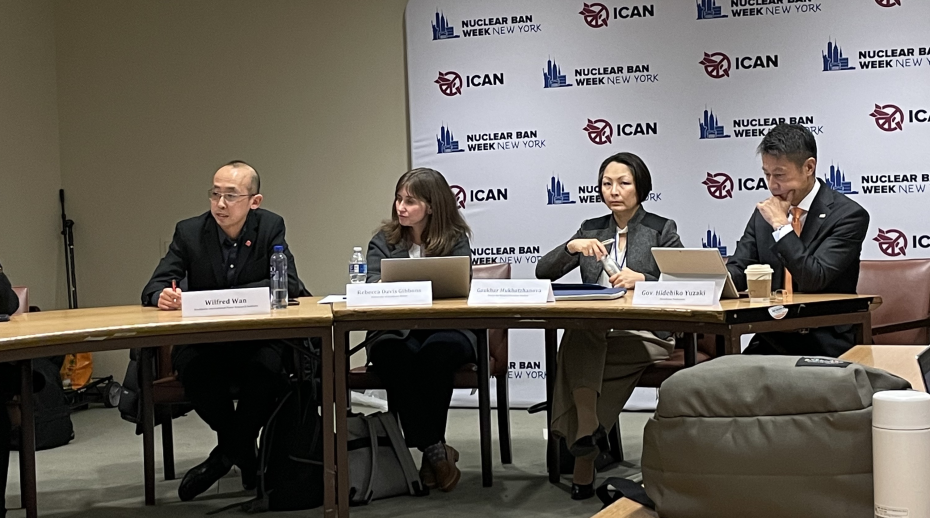
On 27 November, SIPRI and the Alva Myrdal Centre for Nuclear Disarmament at Uppsala University hosted a side event at the second meeting of states parties to the 2017 Treaty on the Prohibition of Nuclear Weapons (TPNW) in New York. The event explored how nuclear disarmament and related issues are being taught in different settings, including in post-secondary institutes, training courses for diplomats and for the general public.
The preambular text of the TPNW recognizes ‘the importance of peace and disarmament education in all its aspects and of raising awareness of the risks and consequences of nuclear weapons’. Education plays a pivotal role not only in shaping perspectives on nuclear weapons but also in forming the policies governing nuclear weapons. Ensuring fact-based analysis around disarmament and deterrence is especially relevant in the current security landscape with increasingly divergent narratives and perspectives about nuclear weapons.
Dr Wilfred Wan, Director of the SIPRI Weapons of Mass Destruction Programme, moderated a panel consisting of Dr Rebecca Davis Gibbons, University of Southern Maine, Gaukhar Mukhatzhanova, Vienna Center for Disarmament and Non-Proliferation, and Governor Hidehiko Yuzaki, Hiroshima Prefecture. The panel discussed how stakeholders can facilitate a wider diversity of views around nuclear weapons policy, key challenges to nuclear weapon education, and practical steps to cultivating a more sustainable approach in education.
About the SIPRI Weapons of Mass Destruction Programme
The SIPRI Weapons of Mass Destruction (WMD) Programme seeks to contribute to the understanding of trends and developments pertaining to nuclear, chemical and biological weapons. It considers the related implications for an increasingly complex security landscape and seeks to identify approaches to address the risks and challenges WMD pose.
Click here to read more about the SIPRI WMD Programme.